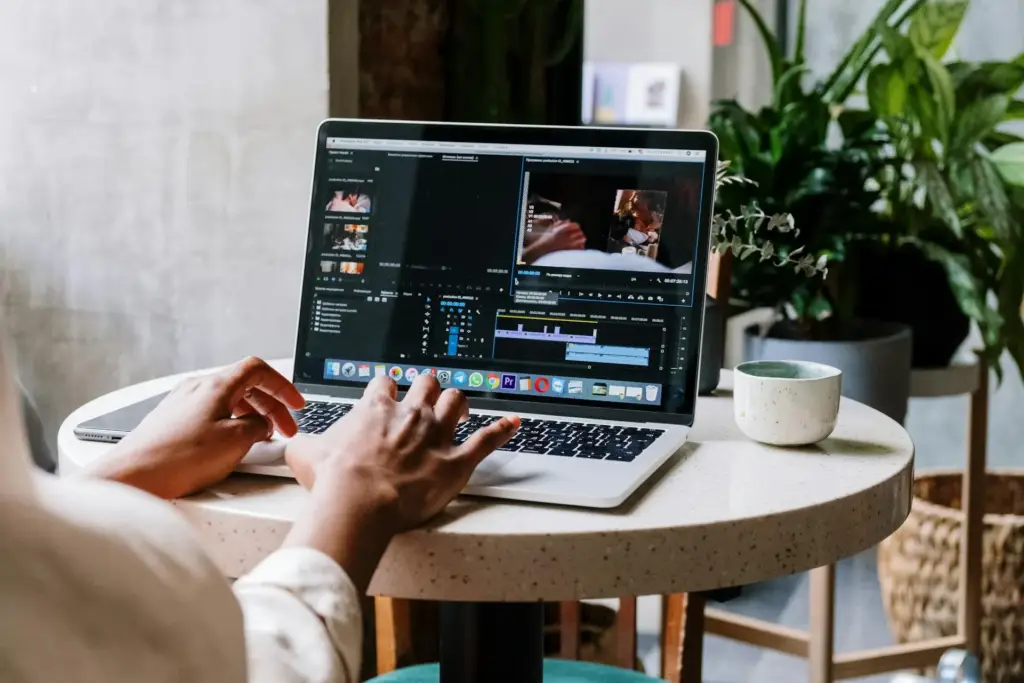The advancement of artificial intelligence (AI) is transforming diverse industries, and the world of film is no exception. From creating visual effects to writing scripts and perfecting dubbing, the impact of AI on the film industry is redefining the way movies are conceived, produced and consumed.
Throughout this article we will explore how AI is revolutionizing the seventh art, offering both challenges and opportunities for filmmakers, producers and artists.
AI in Visual Effects: Creating Imaginary Worlds
One of the most notable aspects of AI’s impact on the film industry is the technology’s ability to enhance and automate visual effects (VFX). AI-powered tools allow artists to create entirely new worlds and realistic characters with less effort and time.
For example, advanced algorithms can generate digital landscapes, animate characters and enhance lighting in real time, reducing production costs. This has led to a boom in the quality of visual effects, as seen in science fiction, fantasy and superhero movies.
In addition, a major theme is that AI is facilitating the restoration and remastering of classic films, allowing audiences to rediscover masterpieces in high definition and with renewed colors.

AI in Script Writing: Creative Inspiration
This is often seen as a controversial topic, as it could put some jobs at risk by bringing to the table the debate whether it is right for AI to write screenplays. The impact of AI in the film industry also extends to screenwriting. Natural language processing tools, such as ChatGPT, are capable of generating plots, dialogue and plot lines.
While human screenwriters remain critical to capturing the essence of a story, AI can serve as a valuable creative assistant. For example, it can be used to develop initial ideas, create quick drafts, or propose alternatives to specific scenes.
In addition, AI can analyze large volumes of data on audience preferences to predict which narrative elements will have the greatest impact. This allows studios to produce films that are more aligned with audience interests.

AI in Dubbing and Localization
Dubbing is another field that generates controversy, since, as in the case of scripts, it brings to the table the debate of whether it is right to allow AI to take over the work of voice actors. The impact of AI on the film industry is becoming clear. Speech synthesis and deep learning technologies can replicate human voices with an impressive degree of realism, facilitating dubbing in multiple languages without the need to record from scratch.
In addition, AI can automatically synchronize characters’ lip movements with the dubbed language, offering a more immersive experience for international audiences. This not only reduces the time and costs associated with dubbing, but also improves accessibility for people from different cultures and regions.

AI in Editing and Post Production
Film editing is a laborious process that requires precision and creativity. Here, too, the impact of AI in the film industry can be felt. AI-based editing tools can analyze hours of footage to select the best shots, automatically adjusting colors, contrasts and transitions.
For example, Adobe Sensei and similar technologies allow editors to work faster and focus on the artistic aspects of editing, while AI takes care of repetitive technical tasks.

AI in Audience Analysis and Marketing
In addition to production, the impact of AI on the film industry also encompasses distribution and marketing. Algorithms can analyze data from streaming platforms and social networks to predict what type of content will be most successful.
This allows studios to design more effective advertising campaigns and adjust distribution strategies according to audience preferences. It can also influence decision-making about which projects to fund and how to position them in the market.
Opportunities and Challenges
While the impact of AI on the film industry is undeniable, it also raises important questions. On the one hand, it offers new tools to enhance creativity, reduce costs and optimize processes. On the other, it raises concerns about job replacement in areas such as visual effects, scriptwriting and dubbing.
In addition, the increasing reliance on AI in film could lead to a standardization of content, reducing narrative and creative diversity.
The Future of AI in Cinema
The impact of AI on the film industry is just beginning. As technologies evolve, we are likely to see even more innovative and personalized films. However, collaboration between humans and machines will be key to ensuring that creativity and authenticity remain the cornerstones of filmmaking.
Ultimately, AI should not be seen as a threat, but as a tool that empowers creators to bring their visions to the screen more effectively.
Artificial intelligence is changing the way we conceive, produce and experience film, ushering in a new era in global entertainment.

